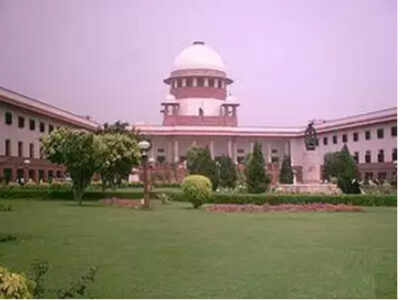- News
- India News
- SC refuses to refer petitions on Article 370 to a 7-judge bench
Trending
This story is from March 3, 2020
SC refuses to refer petitions on Article 370 to a 7-judge bench
The Supreme Court refused to refer to a seven-judge Constitution bench a bunch of pleas challenging the constitutional validity of changes in Article 370 . The bench did not find merit in the plea of the petitioners, who alleged there was contradiction in the verdicts of two five-judge SC benches on the scope of Article 370 .

Supreme Court of India
A five-judge bench of Justices N V Ramana, Sanjay Kishan Kaul, R Subhash Reddy, B R Gavai and Surya Kant, which was set up to decide the issue, said there was no reason to refer the case to a larger bench.

Article 370: No inconsistency in two earlier rulings, says SC
The SC agreed with the contention of the Centre and J&K administration that there was no inconsistency between the decisions of the apex court in Prem Nath Kaul and Sampat Prakash cases.
The petitioners contended that as decision in the Kaul case was not considered in the subsequent judgement, the latter verdict was wrongly decided. After examining the two verdicts, the bench said facts and context were different in those judgments and observations made in a judgment cannot be selectively picked in order to give them a particular meaning. The bench said the SC in the “Prem Nath Kaul case indicated that the Constituent Assembly’s decision under Article 370(2) was final. This finality has to be read as being limited to those decisions taken by the state government under Article 370 prior to the convening of the Constituent Assembly of the state, in line with the language of Article 370(2)”.
“The Constitution bench in the Prem Nath Kaul case did not discuss the continuation or cessation of the operation of Article 370 of the Constitution after the dissolution of the Constituent Assembly of the state. This was not an issue in question before the court, unlike in the Sampat Prakash case where the contention was specifically made before, and refuted by, the court. This court sees no reason to read into the Prem Nath Kaul case an interpretation, which results in it being in conflict with subsequent judgments of this court, particularly when an ordinary reading of the judgment does not result in such an interpretation,” the bench said.
End of Article
FOLLOW US ON SOCIAL MEDIA







